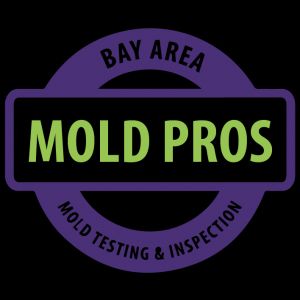How Different Localities May Have Different Needs When It Comes to Mold InspectionPosted by Bayareamoldpros on July 3rd, 2024
Mold is a pervasive issue that can affect any building, but the needs for mold inspection can vary significantly based on the locality. Factors such as climate, building types, and local regulations all play a role in determining the specific requirements for effective mold inspection. In the Bay Area, certified mold inspector Rick Bruce of Bay Area Mold Pros has encountered a variety of scenarios that illustrate how different localities can have unique mold inspection needs. This article will explore these differences and provide case studies of mold inspections in San Francisco homes and buildings. Climate and Environmental Factors One of the most significant factors influencing mold inspection needs is the local climate. Areas with high humidity, frequent rain, and moderate temperatures are particularly susceptible to mold growth. In the Bay Area, the coastal climate contributes to higher humidity levels, which can promote mold growth in homes and buildings. Specific localities within the Bay Area may experience microclimates, leading to varying levels of mold risk. For instance, San Francisco’s famous fog and moisture-laden air create an environment where mold can thrive, particularly in older buildings with less efficient ventilation systems. In contrast, more inland areas with drier climates may have different mold concerns, often related to specific moisture events like plumbing leaks or seasonal changes. Building Types and Materials The type of buildings and construction materials used can also influence mold inspection needs. Older homes and historic buildings often have different vulnerabilities compared to newer constructions. For example, older buildings in San Francisco may have outdated plumbing and ventilation systems that can contribute to persistent moisture problems, making them more prone to mold growth. Conversely, modern buildings might have better insulation and HVAC systems but can still face issues if there are construction defects or water damage. The choice of building materials, such as drywall, wood, and carpeting, can also affect mold growth patterns. Each material may require different inspection techniques and remediation strategies. Local Regulations and Standards Local regulations and standards for mold inspection and remediation can vary widely. Some localities have strict guidelines and requirements for mold inspections, including mandatory reporting and remediation protocols. In the Bay Area, there may be specific city or county regulations that impact how mold inspections are conducted and what actions must be taken when mold is discovered. Understanding these local regulations is crucial for effective mold inspection and compliance. Certified mold inspector Rick Bruce is well-versed in the regulatory landscape of the Bay Area, ensuring that inspections and remediation efforts meet all necessary standards. Case Studies by Rick Bruce: Mold Inspections in San Francisco Homes & Buildings To illustrate the unique mold inspection needs in different localities, here are a few case studies from Rick Bruce’s extensive experience in San Francisco:
Professional Mold Inspection and Testing Services by Rick Bruce For residents and businesses in the Bay Area, professional mold inspection and testing services by Rick Bruce offer peace of mind and effective solutions. With years of experience and certification in mold inspection, Rick Bruce provides detailed assessments tailored to the specific needs of each locality. His expertise ensures that mold issues are accurately identified and effectively remediated, protecting both property and health. Contact Information To request an inspection or learn more about professional mold inspection and testing services, contact Bay Area Mold Pros at (650) 762-6228. Visit Bay Area Mold Pros to schedule a professional mold inspection and mold testing service. Protect your home and business with expert mold assessment and remediation services tailored to your specific locality. Like it? Share it!More by this author |



